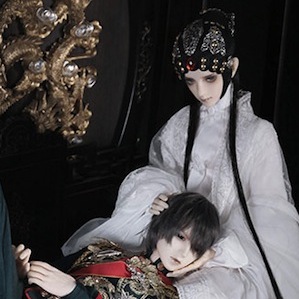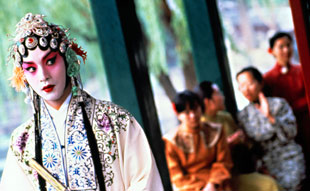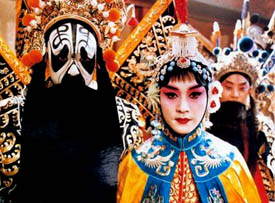Ringdoll sent a short history of Chinese Opera to explain the background of their new dolls Qinzhe and Meng He. The basic versions of the dolls are currently discounted.
From the company:
It’s the time for interesting knowledge about Chinese Opera!
Are you ready?
Opera of the Yuan Dynasty
Opera of the Yuan dynasty is also called the Yuan Poetic Drama which not only is a kind of mature and top-class opera form, but also is regarded as a mainstream literature for a generation thanks to its epoch characteristics and artistic innovation.
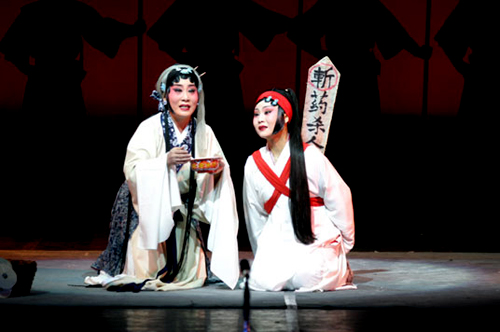
Opera of Ming and Qing Dynasties
Since legend, a kind of opera form, continued until the Qing dynasty, it is usually called legends of the Ming and Qing dynasties. This inherited the structure of southern opera(a kind of local classical opera in South China) in forms and became maturer.
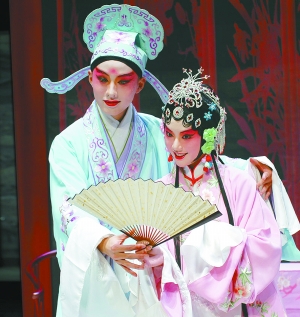
Kunqu Opera
Kunqu Opera, originally named “Kunshan Tune” or “Kun Tune” for short, is an old opera tune and drama genre in China. It was called Kunqu Opera since the Qing dynasty. Kunqu Opera, with a history of more than 600 years, is one of the oldest drama genre of the Han nationality in traditional Chinese opera
Since the end of 16th century, Kunqu Opera gradually occupied a central position in theatrical circles, becoming an important drama genre for more than 200 years.
During the reign of Emperor Wanli of the late Ming dynasty, Tang Xianzu (1550—1616, a great playwright in the development history of Kunqu Opera, was born. He was 15 years older than Shakespeare(1564—1616), the great British dramatist. Both of them died at the same year. Tang Xianzu boldly presented a young and virtuous virgin’s dream on love on the stage in his drama The Peony Pavilion. No sooner was the drama performed than it led to sensation. When A Midsummer Night’s Dream by Shakespeare won bursts of laughter from the audience in London Theater during the Elizabethan Age, The Peony Pavilion also intoxicated audience with its mysterious and gorgeous dream in family stage of China’s wealthy gentry and folk open-air theater. The Peony Pavilion breaks through the conflicts between emotion and reason in traditional Chinese ethnic morals, trying to pursue an ideal love view that love could make people die or resurge for it.
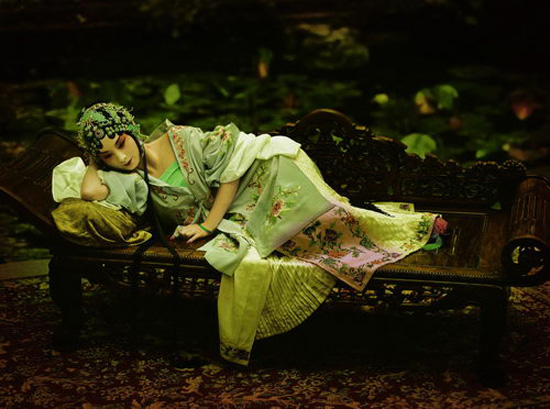
During the late Ming dynasty, Kunqu Opera was performed in the royal court and became a new entertainment form for emperors. Meanwhile, Kunqu Opera broke through regional limitation and was widely spread in the north, truly and totally accepted by the whole society.
Cross Casting
Cross casting refers to a kind of role assignment, namely, men playing female roles or women men’s. Cross casting was very common in performance art of China’a opera and flourished since the Song and Yuan dynasties.
During the Ming and Qing dynasties, due to the more rigorous constraint of the feudal ethical code, men and women could not perform together, and cross casting became very popular, especially male Dan, or male cross-gender, drew wide attention from the society, becoming an unique scenery.
Below: [Leslie Cheung (1956/09/12-2003/04/01),Farewell, My Concubine Movie(BWT, it was a very wonderful movie!)
So, now you know,Qinzhe was cross casting .^-^
BTW, again I’d like to say,
This month, if you’d like to purchase Qinzhe or Meng He (the nude doll), you can have 10% discount.
From tomorrow till this Sunday, will be The Mid-Autumn festival, we will have 4 days holiday.
So any questions please just send your email to : cherry@ringdoll.hk, we will reply you next Monday!

